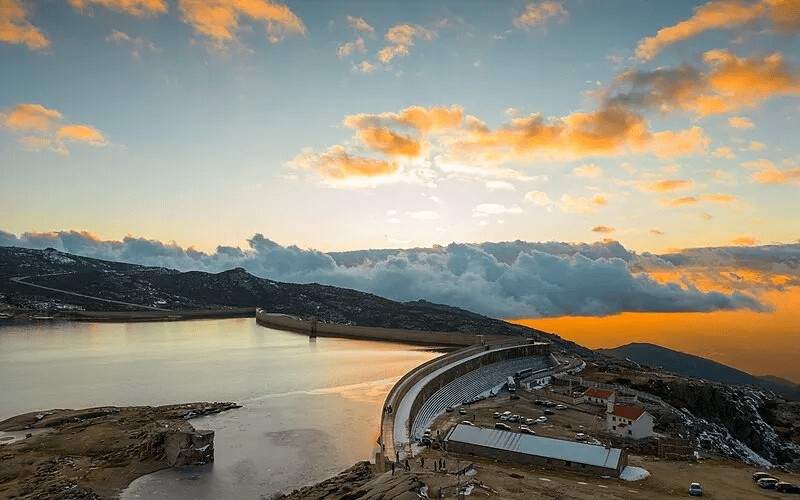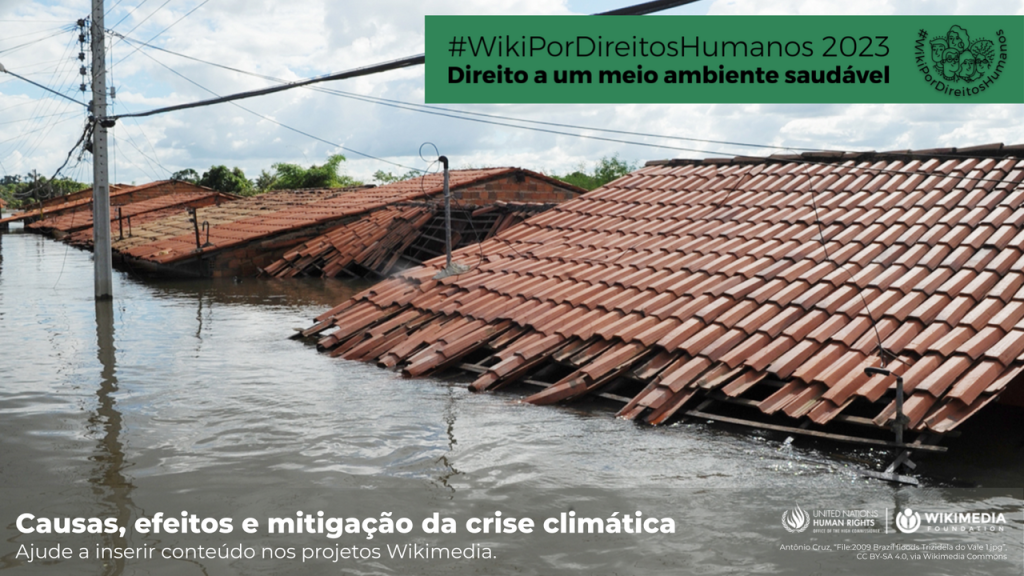
December 10th marked International Human Rights Day, and also the 75th anniversary of the UN’s Universal Declaration of Human Rights (UDHR), which, according to Wikipedia, “enshrines the rights and freedoms of all human beings.” As part of the global celebration of this landmark document, the Wikimedia Foundation is excited to note the return of the WikiForHumanRights campaign in 2024 for its fifth and final cycle.
Since 2019, the WikiForHumanRights campaign has partnered with the Office of the United Nations High Commissioner on Human Rights to support the efforts of the Wikimedia movement to improve Wikipedia’s coverage of human rights-related topics. In 2021, the campaign turned its focus to the UN’s recently ratified Right to a Healthy Environment, exploring the powerful intersection between human rights, climate change, and sustainability. This topical intersection proved energizing for Wikimedia organizers and partners around the world, and the campaign has since iterated on this theme in the following years, delving into the “triple planetary crisis” of climate change, pollution, and biodiversity loss and its impact on human rights and freedoms.
In 2024, the campaign will focus on supporting the diverse community strategies that have emerged over the past few years across regions to address these knowledge gaps, celebrating local innovations and campaign tactics that have activated contributions in specific contexts. It will feature community events from May through July 2024, including an effort to improve Wikipedia articles about the Universal Declaration of Human Rights in more languages, and an international celebration for World Environment Day in June next year.
The overarching theme of WikiForHumanRights 2024 will be The knowledge we need for a sustainable future, and it will mark the beginning of a transition away from the Wikimedia Foundation’s facilitation of the campaign, toward more distributed ownership by movement organizations and regional campaigns more squarely focused on knowledge gaps related to sustainability and the environment.
What have we learned from the last four years?

Collectively, the campaigns have improved 10,000s of articles on over 60 language Wikipedias alongside improving Wikidata and Commons coverage of human rights and environmental issues. But for us, the most important impact has been a transition in how the Wikimedia movement addresses these topics: in the last three years, a decentralized group of Wikimedians working through the Wikimedians for Sustainable Development has grown into regional communities of practice who have coordinated WikiForHumanRights events together.
These topics are conceptually hard to organize and address. In her reflection blogpost on 2023’s campaign, Euphemia Uwandu highlighted the importance of regional coordinators in supporting Wikimedia communities’ efforts to collaborate content creation: into the languages, topics and skills needed for local Wikimedia communities to engage in hard topics like climate change and human rights. WikiForHumanRights has been about both learning to organize in this specific topic, but also sharing tactics and skills amongst the different communities to work together, including through list-building, event organizing and communication strategies.
In our Portuguese and Spanish-speaking communities, and especially for our communities in Africa, the Middle East and North Africa, the WikiForHumanRights campaign has allowed communities to talk to the public about the existential issues created by our current environmental crises. From communication activities such as podcasts, radio interviews and videos, to more hands-on edit-a-thons, photowalks, conferences and biodiversity outings — we are reaching a public that uses the Wikimedia projects to access accurate, reliable information on human rights, climate and sustainability.
Check out this video to learn how different communities joined the campaign last year:
Centering the campaign in your region’s needs!
The campaign was historically designed to respond to the needs of the world and the UN Human Rights partnership – and in the process of supporting it, we have learned to center the special magic that is the Wikimedia community: helping our local and regional organizing communities ensure that knowledge gaps are closed in ways that effectively tell the stories of the impact of climate and sustainability, and catalyze action.
This year’s campaign will be slightly different: we are discontinuing the centralized writing contest, because we are confident that most of the core concepts related to Human Rights and Environmental knowledge are visible in many of the larger language communities. Instead, in order to imagine a sustainable future in public knowledge, we will work at the local and regional level. For that reason, we are only focusing on local and regional events that can respond to local knowledge needs.
This year, we plan to support regional coordination in Arabic speaking communities, CEE, LATAM and North and Sub Saharan Africa, and local events around the rest of the world. If you want to run a local event in your context, please let us know, by joining the Telegram Channel or reaching out to campaigns@wikimedia.org
If your community wants to do an activity and needs a rapid grant for this year’s campaign, there are two cycles in the next 3 months: the first is due January 15 with funding arriving by April and the second is due in April with funding arriving by June. Find out more on Meta.

Can you help us translate this article?
In order for this article to reach as many people as possible we would like your help. Can you translate this article to get the message out?
Start translation